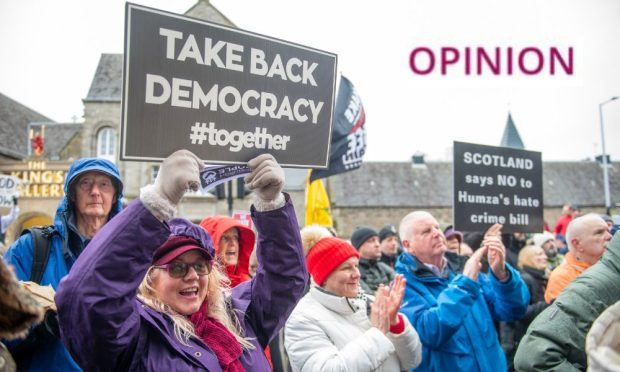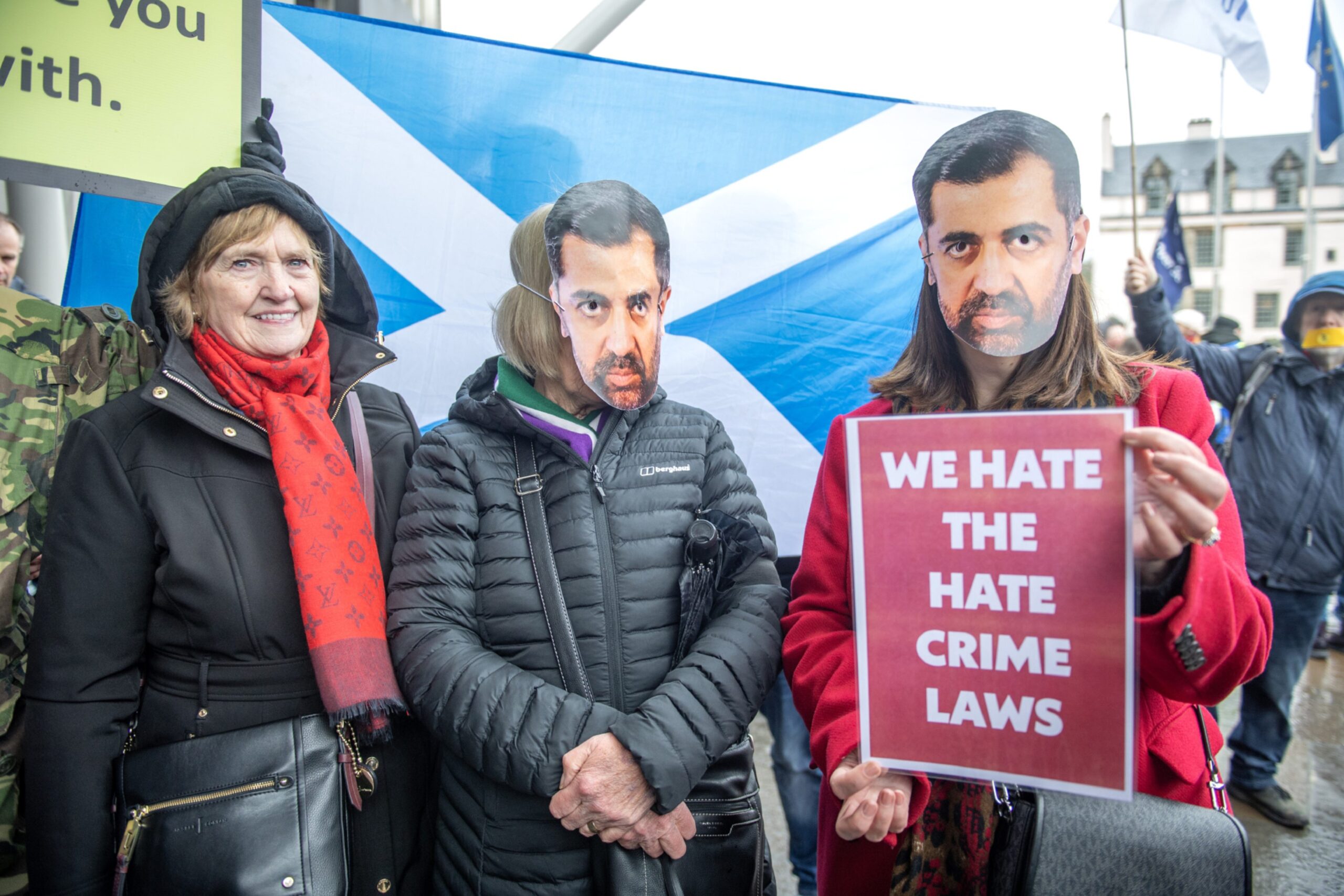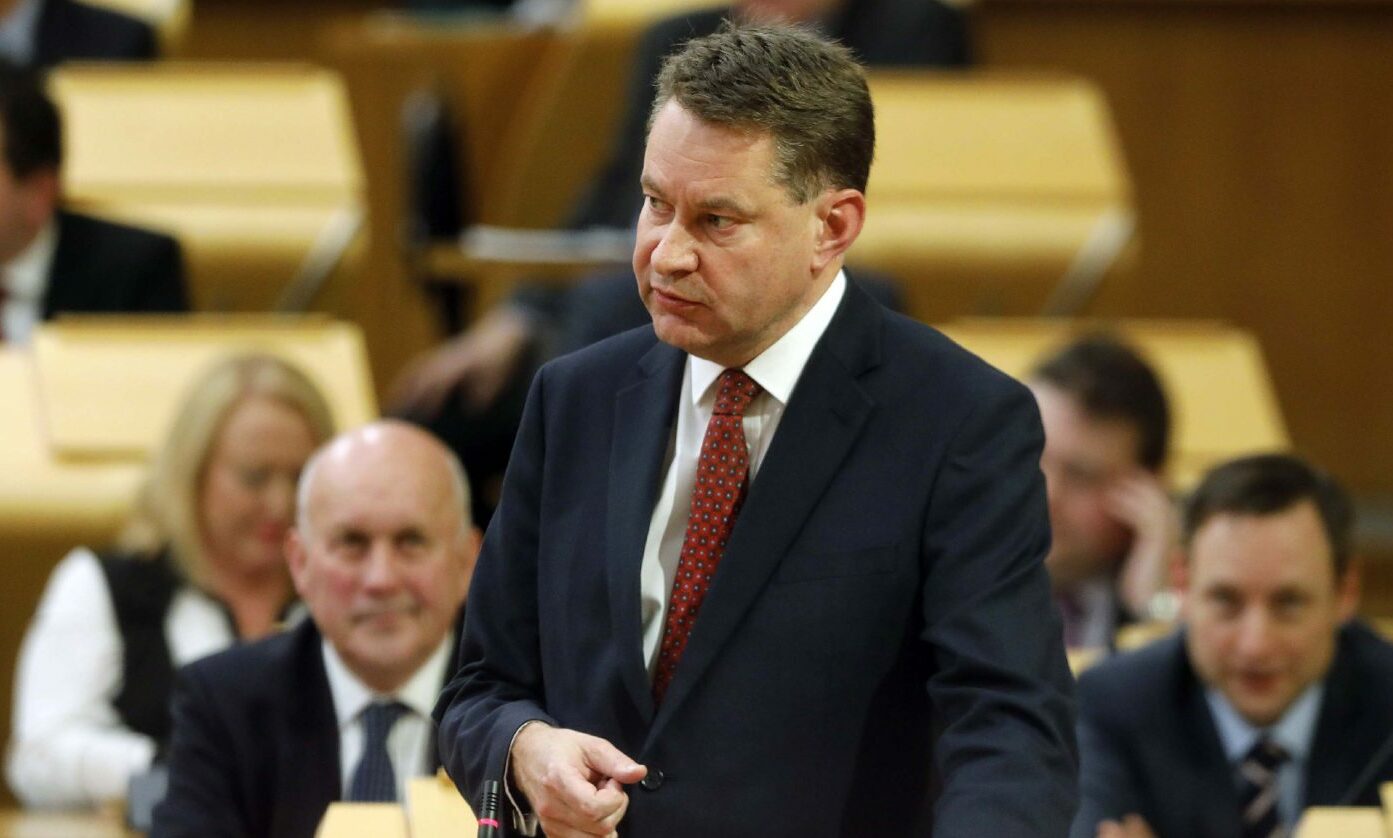Frontline officers have been put under intolerable pressure by the new hate crime law which appropriately came into force on April Fool’s Day.
Police Scotland is under the cosh from swathes of Scottish society angry at what they see as the dangerous curtailment of free speech.
But the job of a police force is to enforce the law.
They don’t have to like it and from what I can see very few do – yet they have to discharge their sworn duties in effecting the law of the land.
And they have to do this no matter how foolish and unworkable those laws are in practice, as opposed to how they sound in theory in the playground of Holyrood where naïve politicians railroaded this through without listening to the reasoned amendments proposed by the few sensible voices warning of the potential pitfalls.
Imbued with their desperate desire to virtue signal and display the milk of human kindness to ensure no one should ever be upset, hurt or offended, they’ve passed a law which has managed to unite folk across the political spectrum in opposition to it.
The list of those with concerns includes JK Rowling, SNP MP Joanna Cherry, Dean of the Faculty of Advocates Roddy Dunlop KC, the Scottish Police Federation and the Association of Scottish Police Superintendents.
The SNP-Green coalition pushed this through but they were backed by Labour and the Liberal Democrats too.
Unintended consequences
The average response cop dealing with much of the vexatious verbiage which will pass for hate allegations has been given a two-hour online training module and is now expected to handle complaints which could see those charged and convicted go to jail for up to seven years.
Interpreting the Hate Crime and Public Order (Scotland) Act 2021 already divides those who’ve studied and practiced law, from everyday working solicitors to King’s Counsel.
So what hope does the everyday beat cop, with a couple of hours of study sandwiched between the wide variety of jobs they do, have in assessing complaints sensibly under this legislation?
The problem with this act isn’t just the possibility of being convicted of a hate crime – it’s the unintended consequences of the law that are also a major worry, as Murdo Fraser has discovered.
The Tory MSP found out by chance that a complaint against him for a post on X in which he’d joked about SNP gender policies, although not a hate crime, had been kept on file as a “non-hate crime incident”.
Such recording of something which is not illegal could seriously damage someone’s future job opportunities in sectors where disclosures may be made to some prospective employers or voluntary organisations.
(Note – Police Scotland has recorded non-crime hate incidents for several years. During an enhanced disclosure, and at the chief constable’s discretion, police can share information they hold with prospective employers.)
Officers are under instructions to record incidents based on the perception of those who’ve been offended and feel they’ve been a victim of a hate crime.
The notion of offence is therefore a completely subjective one decided by the individual complainant.
‘Illiberal government’
The SNP have already come a cropper on the Offensive Behaviour at Football Act and the Named Persons Act.
Both were illiberal pieces of legislation from an illiberal government.
Now in trying to tackle hate they’ve simply further divided the country, with women’s groups for instance angry they’re excluded while transgender people are included as a protected group.
I suspect the protests at Holyrood on Monday, which attracted widespread support from across the political divide, will now multiply mightily as folk fight back to change this bad law.














Conversation